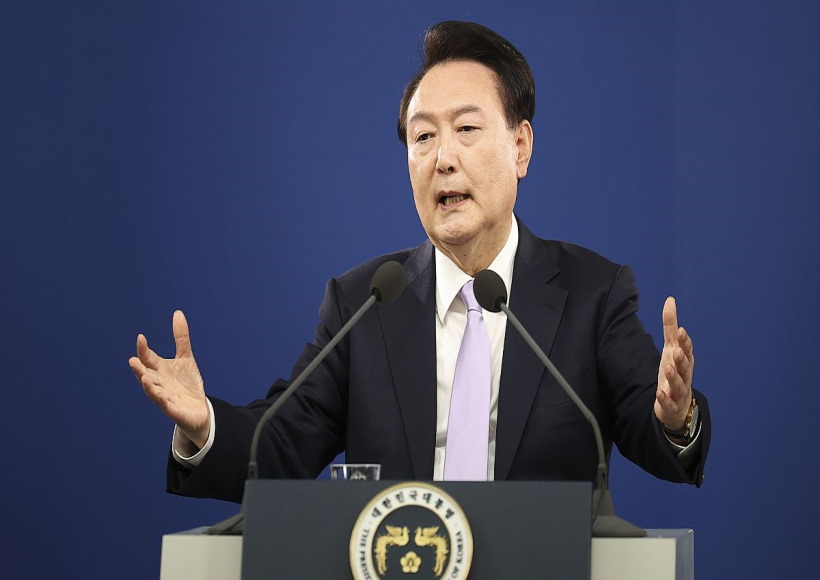Seoul, January 3 (UITV) – A serious political crisis has recently arisen in South Korea, in which the police took an emergency step to arrest the ousted President of South Korea, Yun Suk-Yol, who is facing impeachment, but it was postponed due to the uproar of supporters. This incident has shaken the country’s politics and is being widely discussed. These incidents have happened in connection with an investigation, in which President Yun has been accused of misusing his position and is facing charges of inciting rebellion.
South Korean officials said that an investigation is going on against President Yun Suk-Yol and many serious allegations have been made against him, the most important of which is misusing his official position and creating a situation of rebellion against government officials. In this case, allegations of obstructing the investigation and challenging the process of law have also been made against President Yun. Following this, the investigating agency, the Corruption Investigation Office (CIO), issued an arrest warrant against President Yoon.
However, the process of enforcing this arrest warrant faced several legal and security complications. When CIO officials moved to arrest President Yoon, an hours-long standoff broke out between his security team and the local police. Following this, officials decided to postpone the arrest process. The CIO made it clear that given the confrontational situation, it was practically impossible to attempt an arrest and the move was put on hold for the time being, keeping in mind the safety of the officials.
CIO officials issued a statement saying that “we concluded that it would be practically impossible to act on the detention warrant due to the continued confrontation, and that the action was put on hold due to the safety of the personnel on site.” In addition, they also said that they are reviewing the next steps and will make a decision soon.
Following this development, the number of Yoon’s supporters is also increasing continuously. On Friday morning, more than 1,000 supporters of Yoon had gathered near his residence and this number was continuously increasing. These supporters demonstrated to prevent any kind of legal action against President Yoon and tried to thwart the proposed arrest against him. Yoon’s supporters also made it clear that they were against the arrest of the President and called it a move against democracy.
This situation has become very sensitive at this time because if an attempt is made to arrest President Yoon, it can lead to even bigger protests and this can also increase security concerns. It may prove to be much more risky for the CIO to arrest Yoon on Saturday and Sunday, because during this time the number of protesters is likely to increase further, which can complicate the situation even more.
An important aspect of this whole matter is that President Yoon had declared emergency martial law on the night of December 3, which came into force for a few hours. However, the parliament voted against it and martial law was repealed as a result. The incident proved to be a major political storm in the country as it raised questions over the power of the government and the president.
However, Yoon’s legal team has called the arrest warrant illegal and said they will challenge it in court. The legal dispute is now likely to reach the Supreme Court, which could determine the direction of the investigation against the president.
Meanwhile, opposition parties have also tabled an impeachment motion against President Yoon, which has already been passed by the National Assembly. With this, the role of Acting President Han Duk-soo and Deputy Prime Minister Choi Sang-mok has also increased. Choi Sang-mok has tried to maintain the stability of the government while handling the responsibility of both key posts.
The ongoing legal action and political crisis against President Yoon Suk-yeol in South Korea has sparked deep discussions and concerns within and outside the country. It is clear from this entire incident that a new phase has begun in South Korean politics, in which power struggles, legal disputes and public demonstrations are playing an important role. Now it remains to be seen what will be the end of this struggle and in which direction it will take South Korean politics.




